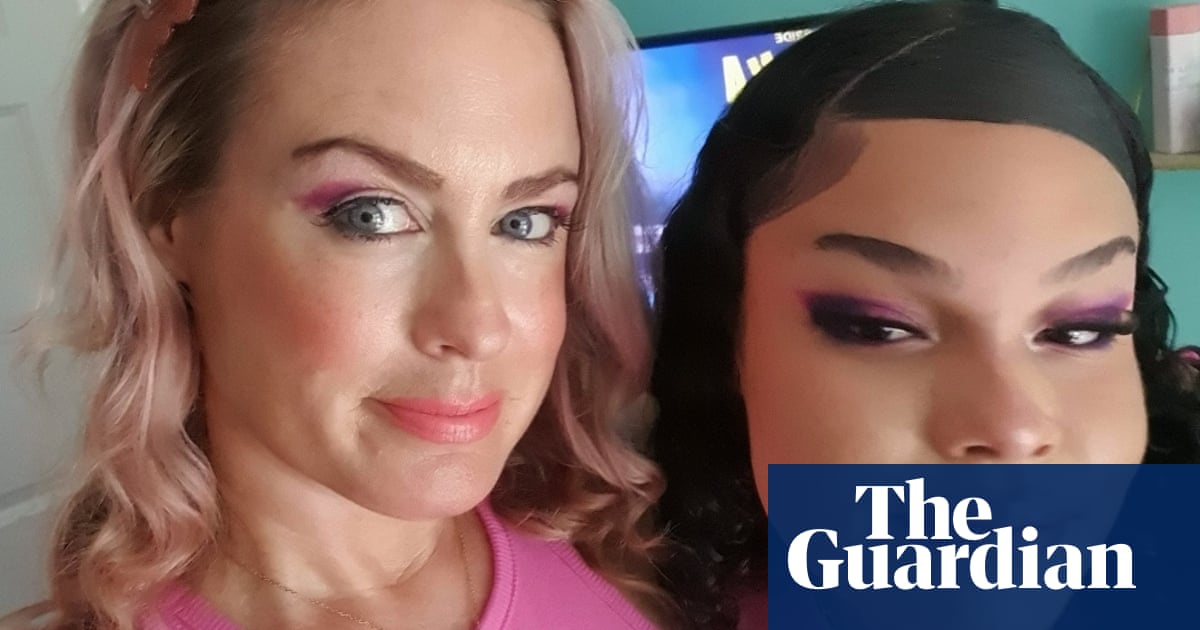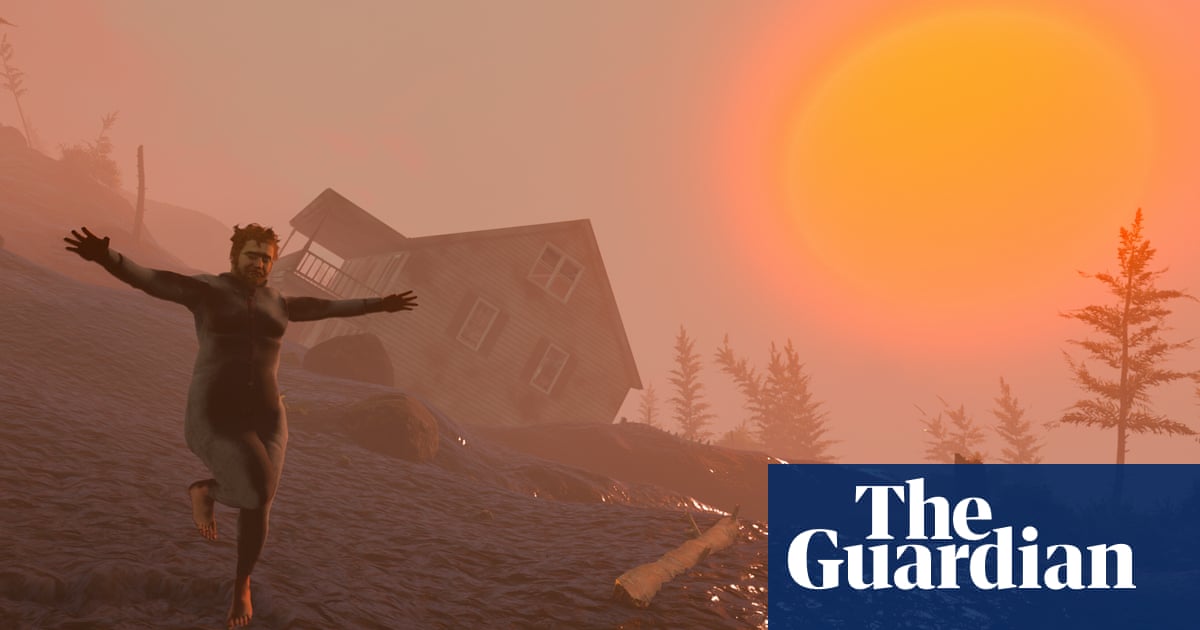
After 25 years of running the pivotal Australian indie label Spunk Records, Aaron Curnow has a lot of stories. Here’s one: in 2008, on the night Texas post-rock band Explosions in the Sky were playing in Sydney for the first time, Curnow’s wife was in labour with their first child. The baby was born and there was no room for Curnow to stay the night – so he raced to the gig, making it just in time. The band directed the crowd to vote on three potential baby names; Melody got the biggest cheer and so the girl was named.
Last weekend Explosions in the Sky played in Sydney again, this time over two nights with the New Zealand troubadour Aldous Harding and the elusive Townsville folk collective the Middle East. It was a farewell to Curnow’s label which, since 1999, has released almost 700 albums in Australia from artists including Belle and Sebastian, Big Thief, the Shins, Spoon, Sufjan Stevens and Yeah Yeah Yeahs.
“I’ve wanted to call [time] over the last year or two, and I got this opportunity at the Opera House to have a 25-year anniversary and a farewell,” Curnow says just before the two finale shows. “I’m beyond excited … and obviously a bit sad at the same time.”
Sign up for the fun stuff with our rundown of must-reads, pop culture and tips for the weekend, every Saturday morning
On the first night Curnow appeared on stage. “I just wanted to thank everyone for the lap of honour,” he told the crowd. “Not many people get to do that in their lives.”
There were moments of transcendence: the wordless choral climax of the Middle East’s Blood; Harding’s strange, hypnotic performance culminating in a rendition of her lovelorn track Horizon, accompanied by the Melbourne singer-songwriter Laura Jean, that felt like being frozen in time; Explosions in the Sky playing their 2003 album The Earth Is Not a Cold Dead Place in full, building from a single, shimmering note to a cacophonous, shattering soundscape. In between sets, music released by Spunk over the years tumbled from the speakers like a mixtape from your coolest friend.
The eclecticism of the show reflected Spunk’s wide-ranging catalogue, from twee to freak-folk, shoegaze to jangle, instrumental rock to chamber pop. The label’s seeds were sown in 1994 when Curnow and his late friend Kieran Dyson created a fanzine called Spunk, then began dabbling in touring. Five years later Spunk Records was born with the release of I See a Darkness, the sixth album by the lo-fi American folk artist Bonnie “Prince” Billy, real name Will Oldham. “Aaron has educated me consistently and constantly on what works and how,” Oldham says via email. “It’s always been edifying.”
Over the next 25 years Spunk became a beloved Australian tastemaker, especially during the mid-2000s indie boom. In my first journalism job when I was 20 at a Sydney street press, I’d take home armfuls of CDs, many released by Spunk, and pore over every note and lyric as I learned how to write, how to be.
Curnow, despite everything, remains self-effacing. He speaks about it all now with a kind of awe, from the first Australian show by a then-unknown Anohni (“That’s probably the best response that I’ve ever seen anyone get in terms of rock’n’roll”) to releasing one of the defining indie records of the 2000s, Arcade Fire’s 2004 debut Funeral (“Everywhere I went, everyone wanted to talk about that record, a bit like Nirvana’s Nevermind”). Through our conversation, names drop like beats: Philip Seymour Hoffman, Lou Reed, Boy George. Curnow has rubbed shoulders with them all.
In Spunk’s early days many international artists crashed at Curnow’s home in Stanwell Park, a beach town north of Wollongong where he moved almost two decades ago. He convinced them to play local gigs while there. That became a large part of Spunk’s identity, and Curnow’s, too: he co-founded the annual Thirroul music festival. “They’d be hanging at the house and I’d go, ‘Come on, Tallest Man [on Earth], play at the local hall,’” he recalls. “I’ve told lots of my artists how there can be a career going to all those regional centres … There’s so many great people doing tours through all those places now.”
Locally, Spunk championed Australian artists including Jack Ladder and Holly Throsby; over the pond Curnow signed Harding, Nadia Reid and Tiny Ruins as the New Zealand folk scene was exploding.
Throsby inked her first record deal with Spunk on the back of a Unicorns poster over coffee. Her five solo albums have all come out through the label, and she has collaborated and toured with labelmates including Bill Callahan and Joanna Newsom. “I’d never played outside of Sydney when my first album came out,” Throsby remembers. “Aaron has an amazing gift for discovering new artists and seeing potential.”
The prolific Melbourne musician Lachlan Denton – who was in his best-known band, the Ocean Party, with his late brother Zac – estimates that he has released 30 albums with Spunk over the last decade. “I’ve never had any interest in seeking another label because [Curnow] has always given us the freedom to do whatever we want,” Denton says. “He’s music obsessed. I genuinely never really got the feeling that selling records was the priority … He’s a classic 90s guy who is doing it for the right reasons.”
But all good things must come to an end. Since 2018 Curnow has been working in a council role to expand the vibrant musical hub of western Sydney. He scaled operations down at Spunk accordingly – for the last five or so years, it’s been a one-man show. Much of the thrill of those heady early days came from enthusiastic young staffers sharing their discoveries: “I remember [one of them] coming into the office saying, ‘You need to sign this guy Mac DeMarco – he’s the greatest thing ever,’” Curnow says. “I haven’t seen that in recent years – that’s been one of the more disappointing things.”
With venues and festivals struggling, and streaming monopolising consumption, the music industry is in a tough place. “It’s literally impossible now for a record label to exist,” Curnow says. But he prefers to stay positive, rallying for small, passionate labels to keep creating magic: “Hopefully a few more grants will pop up so that record labels might get some financial support and can support their artists as much as I did over my career … [and] get to experience it like I got to experience it.”
For the record, his second daughter is named Harmony.












